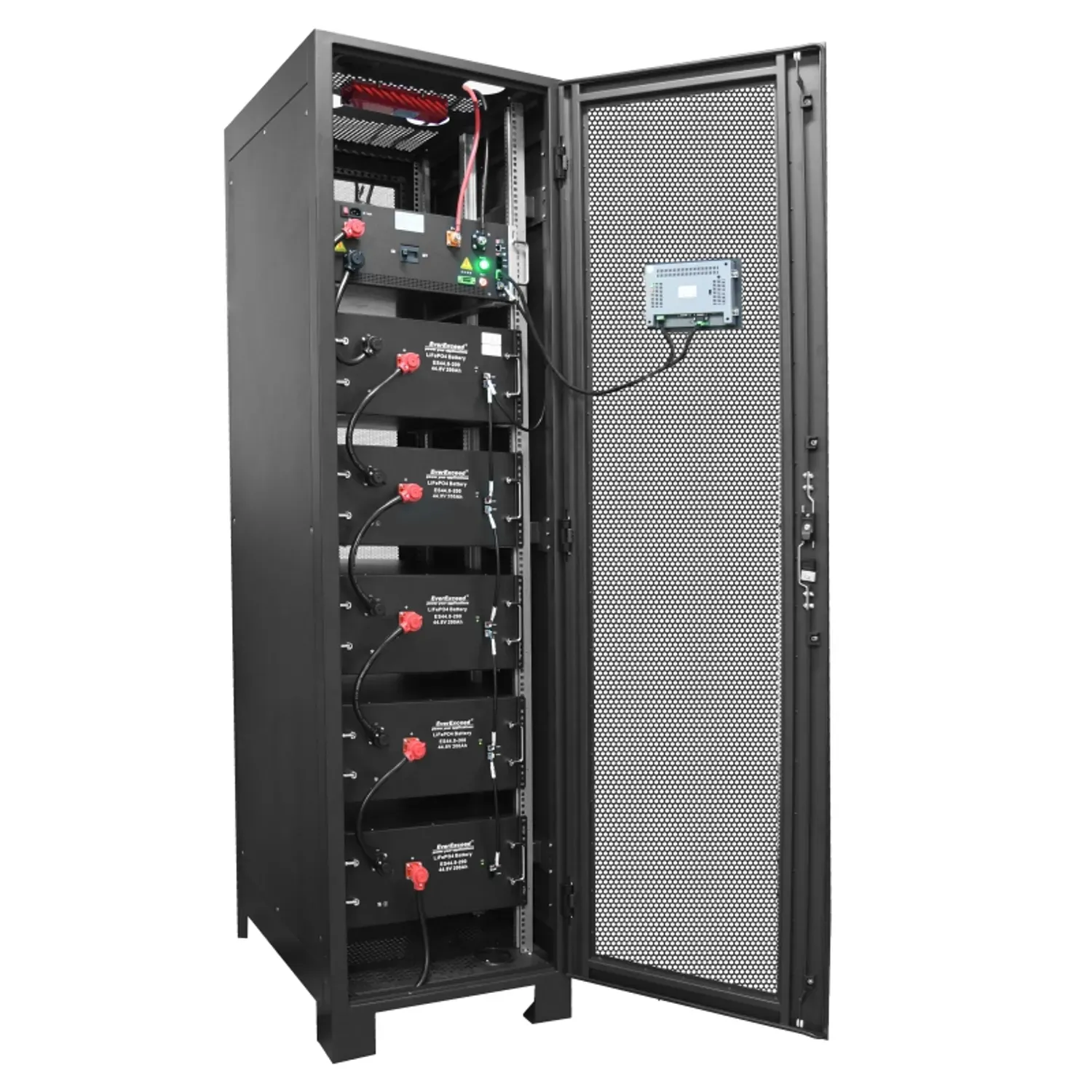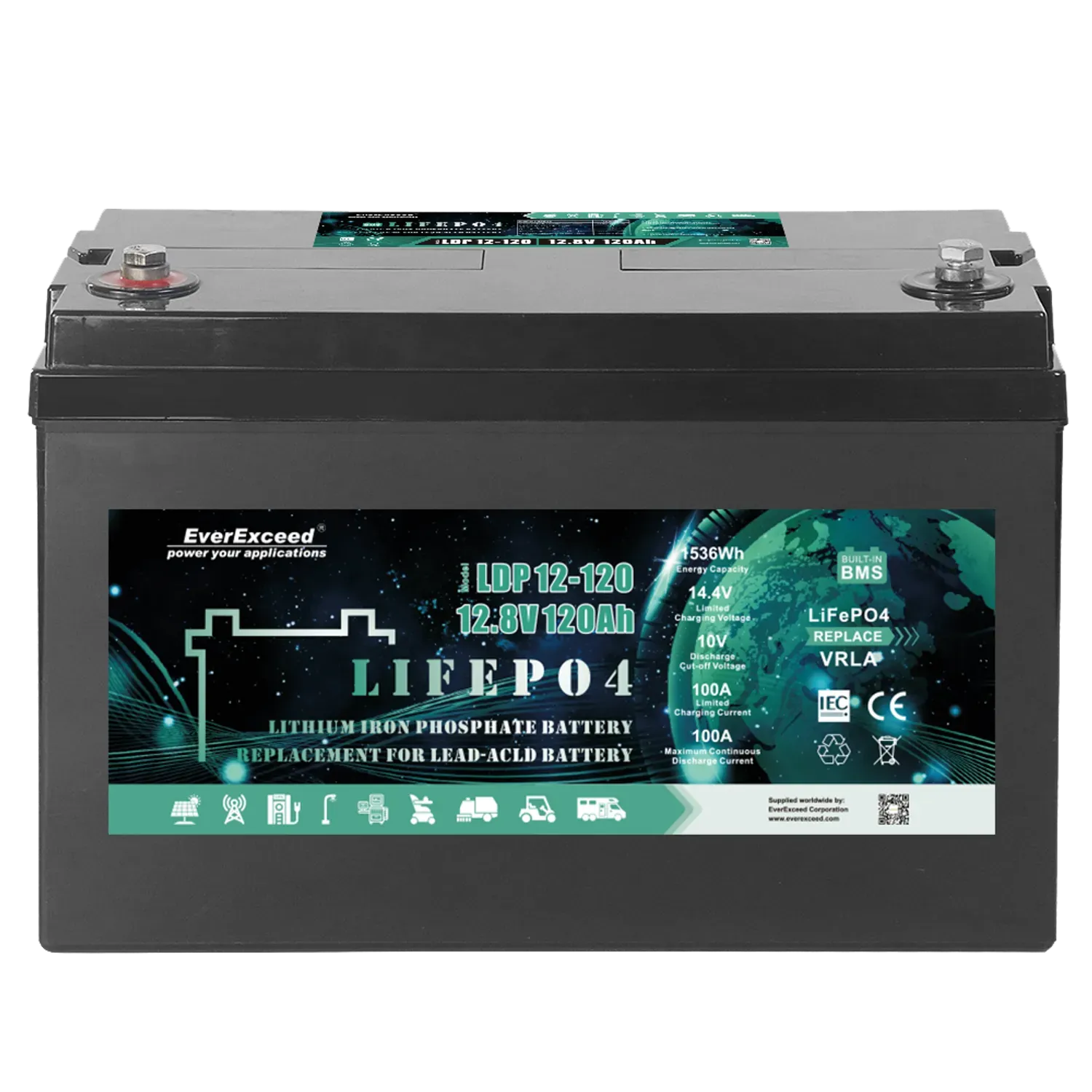
Get a Quote
Why Is LiFePO4 Safer for UPS?
In critical applications, the safety and reliability of battery systems are paramount. Whether it's safeguarding data centers, hospitals, or other essential services, a dependable UPS (Uninterruptible Power Supply) system is crucial. This blog explores why LiFePO4 (Lithium Iron Phosphate) batteries are the best choice for UPS systems, highlighting their superior safety, reliability, and efficiency.
Understanding UPS and Battery Requirements
Overview of UPS Systems
A UPS (Uninterruptible Power Supply) system provides immediate power backup during a mains power failure, ensuring continuous operation of connected equipment. UPS systems are essential in environments where power interruptions can lead to significant operational disruptions, data loss, or safety issues. By delivering instantaneous power, UPS systems bridge the gap between the loss of main power and the activation of backup generators or the restoration of utility power.
Battery Requirements for UPS
UPS batteries must meet stringent criteria to ensure they provide reliable and efficient power during emergencies. Key attributes include:
- Safety: The battery must operate safely under various conditions, including high temperatures and potential overcharging. Safety features should mitigate risks of overheating, combustion, or chemical leaks.
- Reliability: A reliable UPS battery should consistently provide power without failure. This reliability is crucial for maintaining the continuous operation of critical systems.
- Longevity: Long-lasting batteries reduce the frequency of replacements, thereby lowering maintenance costs. Batteries with higher cycle life are more desirable.
- Efficiency: High energy density and efficient power delivery ensure that the UPS system can support connected loads without requiring excessive space or weight.
By understanding these essential requirements, it becomes clear why LiFePO4 batteries stand out as the ideal choice for UPS systems.
Different Types of Lithium-Ion Batteries
Lithium-ion batteries are widely used due to their high energy density, lightweight design, and long lifespan. These batteries power everything from smartphones and laptops to electric vehicles and UPS systems. Despite their common name, not all lithium-ion batteries are created equal, as different chemistries offer distinct advantages and disadvantages.
Lithium Cobalt Oxide (LiCoO2)
Lithium Cobalt Oxide batteries are prevalent in consumer electronics like laptops, tablets, and cameras. They offer high energy capacity, making them ideal for devices requiring frequent recharging. However, these batteries have some drawbacks, including a higher risk of overheating and a shorter lifespan compared to other lithium-ion chemistries.
Lithium Polymer
Lithium Polymer batteries are another type commonly found in consumer electronics, particularly in smartphones. Known for their lightweight and flexible design, these batteries can be shaped to fit various devices. While they are efficient and compact, they also share some of the safety concerns associated with LiCoO2 batteries, such as potential overheating and shorter cycle life.
Lithium Iron Phosphate (LiFePO4)
UPS LiFePO4 batteries stand out due to their exceptional safety, stability, and longevity. Unlike other lithium-ion chemistries, LiFePO4 batteries use iron phosphate as the cathode material, providing superior thermal and chemical stability. This makes them an ideal choice for applications requiring high safety and reliability, such as UPS systems.
Why LiFePO4 Is Safer for UPS
Chemical Stability
LiFePO4 batteries are renowned for their chemical and thermal stability. The iron phosphate used in these batteries significantly reduces the risk of overheating and combustion. Unlike other lithium-ion chemistries, the iron phosphate-oxide bond is stronger than the cobalt-oxide bond found in batteries like LiCoO2. This stability ensures that even when subjected to high power demands or physical damage, the batteries maintain their integrity without posing a fire risk.
Safety Features
- Incombustibility: LiFePO4 batteries are virtually incombustible, even in hazardous events such as collisions or short-circuiting. They won't explode or catch fire, significantly reducing any chance of harm.
- Less Heat Generation: LiFePO4 batteries produce less heat during operation, preventing the breakdown of the electrolyte solvent. This prevents thermal runaway, a dangerous condition where the battery heats uncontrollably.
- Advanced Battery Management Systems: Equipped with built-in safeguards, LiFePO4 batteries offer protection against overcharging, overload, over-temperature, and short-circuit conditions. These systems enhance the reliability and lifespan of the batteries, ensuring uninterrupted power supply during critical moments.
Environmental Safety
LiFePO4 batteries do not contain toxic materials or emit dangerous fumes. They are non-toxic, non-contaminating, and do not contain rare earth metals, making them an environmentally conscious choice. This simplifies disposal and recycling processes, contributing to a greener environment.
Enhanced Battery Management
LiFePO4 batteries come equipped with advanced management systems that provide protection against overcharge, overload, over-temperature, and short-circuit conditions. These built-in safeguards enhance the reliability and lifespan of the batteries, ensuring uninterrupted power supply during critical moments.
Reliability and Efficiency of LiFePO4 Batteries
Energy Density and Weight
LiFePO4 batteries offer higher energy density and are lighter compared to traditional lead-acid batteries. This allows them to deliver more power while occupying less space and reducing the overall weight of the UPS system. This feature makes installation and maintenance easier and more cost-effective.
Cycle Life
One of the standout features of LiFePO4 batteries is their long cycle life. They can endure more charge and discharge cycles than lead-acid and many other lithium-ion batteries, resulting in a longer lifespan and fewer replacements. This durability makes them a cost-effective solution for long-term UPS applications
Performance in High Temperatures
LiFePO4 batteries perform exceptionally well in high-temperature environments, maintaining stability and reliability where other batteries might fail. This resilience ensures that UPS systems using LiFePO4 batteries can operate efficiently even under challenging conditions, providing consistent power protection.
By choosing LiFePO4 batteries for UPS systems, users benefit from enhanced safety, reliability, and efficiency, ensuring critical applications are always protected.
Cost-Effectiveness and Total Cost of Ownership
Initial Costs vs. Long-Term Savings
While the initial investment in LiFePO4 batteries may be higher than traditional lead-acid batteries, the long-term benefits far outweigh this upfront cost. With a significantly longer lifespan and reduced replacement frequency, LiFePO4 batteries lead to substantial savings over time. Their high energy efficiency also results in lower operational costs, making them a more economical choice in the long run.
Maintenance and Replacement
LiFePO4 batteries require minimal maintenance compared to lead-acid batteries, which need regular upkeep to prevent sulfation and ensure proper functioning. Their robust design and advanced battery management systems reduce the risk of failure and the need for frequent replacements, resulting in lower maintenance costs and less downtime for the UPS systems.
Conclusion
When it comes to UPS systems, safety and reliability are non-negotiable. LiFePO4 batteries excel in both areas, offering robust performance even in demanding conditions. Their environmentally friendly composition and advanced safety features further solidify their position as the best choice for modern UPS systems. Choosing LiFePO4 batteries means investing in a solution that delivers consistent, reliable power while minimizing risks and costs.
If you're considering upgrading your UPS systems, wholesale lithium iron phosphate battery from EverExceed are an excellent choice. With their superior safety, reliability, and cost-effectiveness, they provide unparalleled peace of mind and operational efficiency. Upgrade to LiFePO4 batteries today and experience the benefits of the safest, most reliable, and economically sound power solution available.
FAQ
1. Why are LiFePO4 batteries safer for UPS systems?
LiFePO4 batteries have superior chemical stability and are virtually incombustible. They generate less heat and come with advanced management systems that prevent overheating and short circuits.
2. How does the safety of LiFePO4 compare to other lithium batteries?
Unlike lithium cobalt oxide (LiCoO2) and lithium polymer batteries, LiFePO4 batteries have a stronger iron phosphate-oxide bond, making them less prone to thermal runaway and combustion.
3. Are LiFePO4 batteries environmentally friendly?
Yes, LiFePO4 batteries are non-toxic, non-contaminating, and contain no rare earth metals, making them an environmentally conscious choice.
4. What is the lifespan of LiFePO4 batteries in UPS systems?
LiFePO4 batteries have a longer lifespan than traditional lead-acid and other lithium-ion batteries, with a higher cycle life, making them a cost-effective solution for long-term UPS applications.


